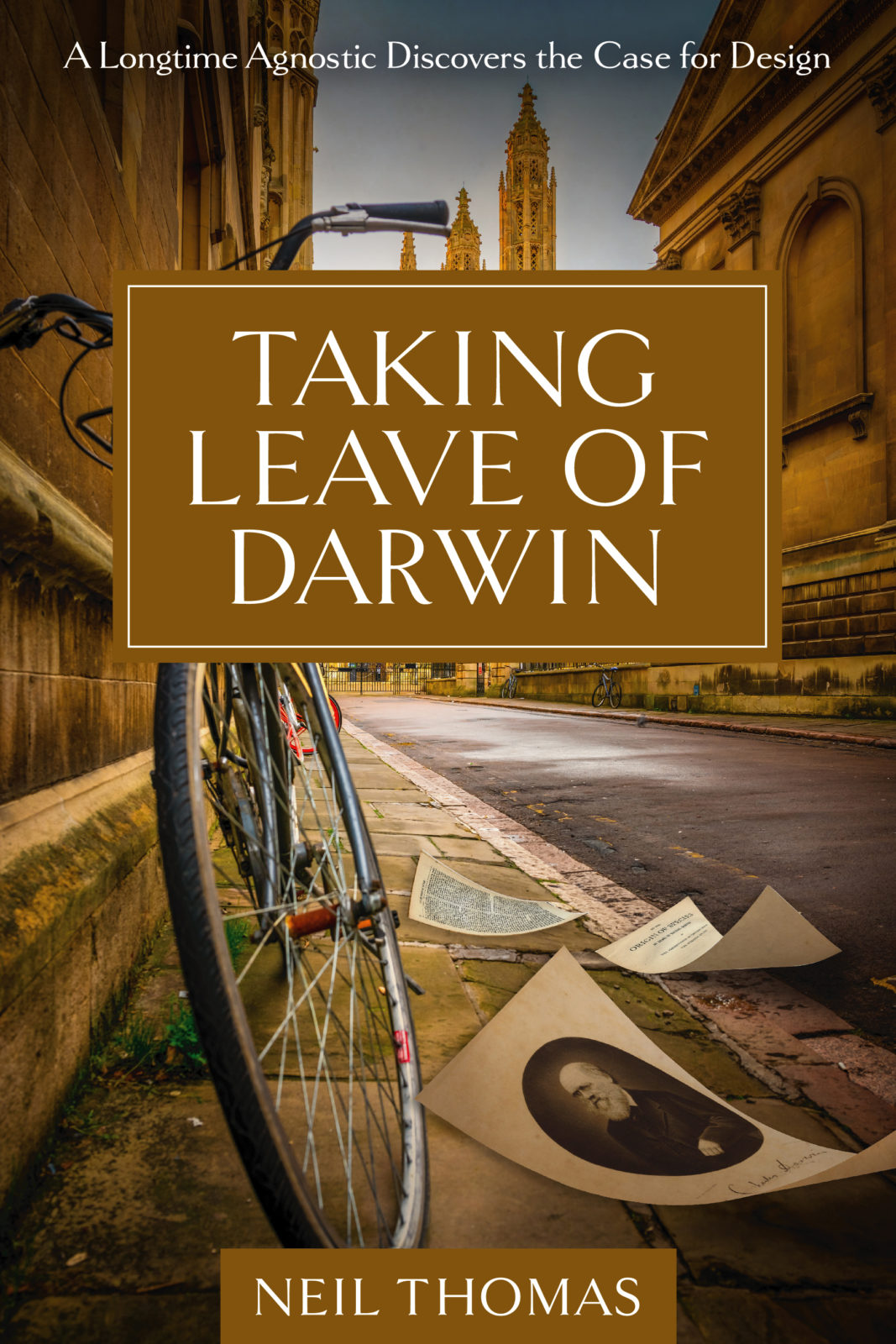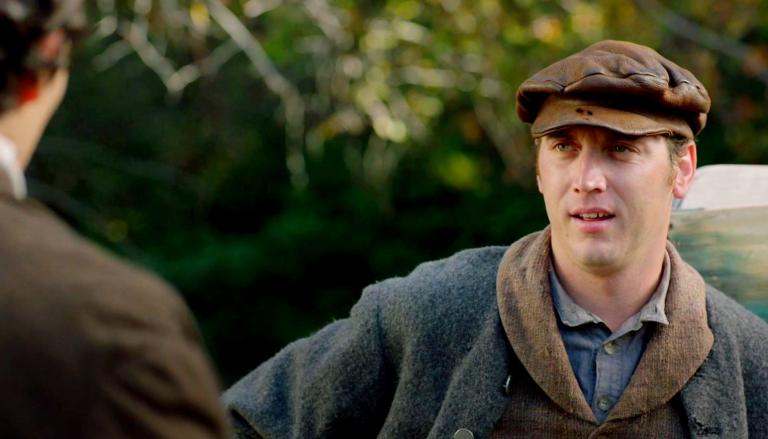
The flight today from Salt Lake City to St. Louis took something on the order of two and a half hours. O, the suffering that I endure for my art! I couldn’t help but associate myself in my mind with the discomforts and hardships undergone by nineteenth-century Latter-day Saint pioneers, who often traveled roughly the same route, albeit in reverse. (They commonly came through St. Louis for supplies as they began their journey across the plains and over the Rockies to settle in the Great Basin.). But they were able to devote a leisurely six months to sauntering along the trail, as opposed to my frenetic pace of 150 minutes. And do you think that they had to settle for mini-bags of pretzels? Were they required to listen to piped-in Muzak as they waited for take-off? Clearly, I’m a martyr.

Among other things, during the flight from Salt Lake City I began reading Neil Thomas, Taking Leave of Darwin: A Longtime Agnostic Discovers the Case for Design (Seattle: Discovery Institute, ) Here is an associated biographical blurb about him:
Neil Thomas is a Reader Emeritus in the University of Durham, England, and a longtime member of the British Rationalist Association. He studied Classical Studies and European Languages at the universities of Oxford, Munich, and Cardiff before taking up his post in the German section of the School of European Languages and Literatures at Durham University in 1976. There his teaching involved a broad spectrum of specialisms including Germanic philology, medieval literature, the literature and philosophy of the Enlightenment and modern German history and literature. He also taught modules on the propagandist use of the German language used both by the Nazis and by the functionaries of the old German Democratic Republic. He published over 40 articles in a number of refereed journals and a half dozen single-authored books, the last of which were Reading the Nibelungenlied (1995), Diu Crone and the Medieval Arthurian Cycle (2002) and Wirnt von Gravenberg’s ‘Wigalois’: Intertextuality and Interpretation (2005). He also edited a number of volumes including Myth and its Legacy in European Literature (1996) and German Studies at the Millennium (1999). He was the British Branch President of the International Arthurian Society (2002-5) and remains a member of a number of learned societies.
I’m certainly not a dedicated enemy of theories of biological evolution. I think that my favorable column in Meridian Magazine about Samuel T. Wilkinson, Purpose: What Evolution and Human Nature Imply About the Meaning of Our Existence (New York and London: Pegasus Books, 2024) — “How Can We Make Sense of Evolution?: A Latter-day Saint Perspective” — especially when it’s coupled with my subsequent October 2024 video interviews with Dr. Wilkinson and Ben Spackman, should establish my credibility in that regard beyond reasonable dispute.
I simply don’t think it tenable (or helpful to religious faith) to claim, flatly, that there is no serious evidence for significant biological change over time, let alone to pretend that the theory of evolution is solely or principally the result of some imagined godless conspiracy.
That said, atheistic ideology has sometimes motivated certain advocates of evolution, just as, unfortunately, some onetime religious believers have fallen into naturalistic atheism because of what they believe to be the entailments of evolutionary theory. More to the point here, though, I believe that informed critics of the several varieties of Darwinian theory have raised important questions that shouldn’t merely be brushed off with a dismissive wave of the hand, as is commonly done. In that light, I’ve enjoyed the very limited portion of Taking Leave of Darwin that I’ve read thus far, and I think that I’ll share a few of the passages that I’ve marked in it to this point. For now, I’ll confine myself to a few things from his Prologue, as well as the epigraph to his first chapter:
After years of simply assuming Darwinism to be true, he says, he gradually began to entertain the possibility that “the grand story of evolution by natural selection was little more than a creation myth to satisfy the modern age.” And, in his view, this isn’t merely an academic issue, “for if there is one subject that has had huge, often convulsive implications for the generality of humankind, it is Darwin’s theory of evolution.”
Thomas readily admits that, while he has now read widely about the topic, he possesses no formal qualifications for writing on the subject of biological evolution. But, he writes, “the subject is of too universal an import to be left entirely in the hands of subject specialists, some of whom exhibit an alarming degree of bias and intransigent parti pris unconductive to the dispassionate sifting of scientific evidence.” Of himself, he says that “I have long been a non-theist and can at least give the assurance that the critique which follows will be based solely on rational criteria and principles.”
As the epigraph to the first actual chapter of Taking Leave of Darwin, Thomas cites the prominent American philosopher Thomas Nagel, of New York University, who is an avowed atheist. In his book Mind and Cosmos, Nagel writes,
I would like to defend the untutored reaction of incredulity to the reductionist Neo-Darwinian account of the origin and evolution of life. It is prima facie highly implausible that life as we know it is the result of a sequence of physical accidents together with the mechanism of natural selection. . . . I find this view antecedently unbelievable — a heroic triumph of ideological theory over common sense. The empirical evidence can be interpreted to accommodate different comprehensive theories but in this case the cost in conceptual and probabilistic contortions is prohibitive. (Thomas Nagel, Mind and Cosmos: Why the Materialistic Neo-Darwinian Concept of Nature is Almost Certainly False [Oxford: Oxford University Press, 2012], 6, 128)

Miraculously, Witnesses is still available for free streaming at The Witnesses Initiative. I’m afraid that we can’t let this go on forever, though, so I myself may be obliged to intervene. My counsel, accordingly, is that you and your family and your neighbors and your extended kin and the members of your ward and stake take advantage of the opportunity while you still can.
If you want it, here it is. Come and get it.Mmh, make your mind up fast.If you want it, any time, I can give it.But you’d better hurry ’cause it may not last.
Posted from St. Louis, Missouri











